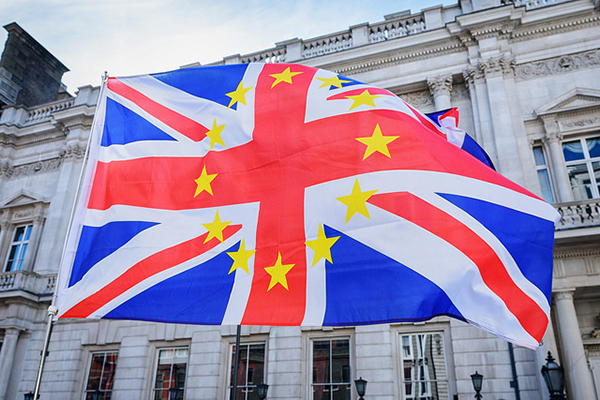
In recent weeks a campaign has started to gather pace in the UK to stop Brexit –in favour of Remain, the losing side in the June 2016 referendum– before it comes into effect on 29 March 2019, less than a year from now. Reversing the decision, however, once Article 50 of the Treaty of Lisbon has been invoked, will not depend only on the British, but also on the unanimous approval of the other 27 EU governments.
Factors that favour reversing the decision:
- There is more and more evidence pointing to the Brexit campaign having been conducted against a backdrop of manipulated information and undeliverable promises. Cambridge Analytica, for one, played a role in it, with its system of psychographic advertising, according to the testimony of Christopher Wylie. This may lend legitimacy to a new referendum.
- As the former Permanent Secretary at the Foreign Office Simon Fraser suggests, it is possible that by the end of 2018, when the negotiations clarify what Brexit entails, there will be a new ‘decision point’, and not only in parliament –calls will be made for a new referendum–.
- Movements are being organised from the grassroots, unlike David Cameron’s unsuccessful campaign, to secure continued membership. A new party, Renew, is trying to enlist young people to stop Brexit. To the same end the financier George Soros has donated £500,000 via his Open Society Foundation to the Best for Britain campaign.
- Theresa May is a weak Prime Minister in charge of a divided government that is dependent on the votes of the Democratic Unionist Party in Northern Ireland.
- The House of Commons Brexit Committee has suggested that the government should request the extension of the period set out in Article 50, currently two years. This does not equate to permanent membership, but rather extending the period of departure. It would require the unanimous approval of the 27.
- Although he was at first Eurosceptic and a proponent of Brexit, the position of the Labour Party leader Jeremy Corbyn is changing. He has already executed a U-turn with his support for remaining in the customs union. A complete U-turn in favour of Remain could transform the political situation. More Labour MPs are publicly expressing their support. In principle, however, the legislative term runs up to 2022, in other words considerably beyond the date fixed for Brexit and the transition period.
- Failure to find a solution that would stave off having to re-erect a physical border between the Republic of Ireland and Northern Ireland weighs against Brexit and the unity of the UK.
Factors that count against:
- Organising a new referendum could be viewed as undemocratic. Theresa May flatly refuses to countenance it.
- The opinion polls have hardly changed: if a new referendum were held today it would produce virtually the same result as in 2016. But many people have switched off and do not understand what May wants out of Brexit.
- Proponents of leaving are still highly organised and enjoy considerable support in the media.
- Many businesses grumble about Brexit but are failing to act in any concerted way.
- The economic impact of Brexit has not been as dire as some forecasts predicted. The UK is close to full employment. Cultural considerations (including the rejection of immigration) weighed more heavily in the Brexit verdict than economic ones. And this has not changed.
- If Brexit turns out to be less dire, calls to reverse it run out of steam. In the wake of the most recent talks it is highly likely that we are heading towards a ‘soft’ Brexit, enabling a deal to be struck on free trade, not dissimilar to the one currently being drafted. This would also enable a solution to the Irish problem. The transition period runs up to the end of 2020, facilitating adaptation to departure.
- The other 27 EU members have not only assimilated Brexit, they are also taking advantage of it (albeit insufficiently) to make headway on certain areas that the British had been blocking, such as the Common Security and Defence Policy. Despite the advantages from a budgetary point of view (with Brexit they will have to dig deeper in order to cover the British contribution), they will be reluctant to contemplate the continued membership of a eurosceptic UK that thwarts EU attempts at integrating further. And it would be difficult for the UK to accept this unless the EU changes in the way it wishes.
- Holding a second referendum would require a majority of votes in Parliament, currently non-existent, to pass a law to this effect. According to the former Minister of State for the EU Dennis MacShane, who saw Brexit coming in his 2015 book Brexit: How Britain will Leave Europe, if there had been such a majority, there would also have been one to stop and delay Brexit. It is possible that, once it passes the withdrawal bill later this year, Parliament will end up endorsing a second referendum. Even then, the result is not a foregone conclusion.
- As things stand the internal war taking place within the Conservative Party to succeed May is led by Boris Johnson and Jacob Rees-Mogg, both hard-line Brexiteers. The decision on the possible change in leadership will be taken by a few tens of thousands of Tory party members, of advancing years and not at all well-disposed to continued EU membership. Those Conservatives in favour of remaining within the EU, including such prominent figures as Michael Heseltine, carry little weight.
Conclusion: The prospects of reversing the dynamic surrounding Brexit do not at present look encouraging. But the game is not over yet. The roulette wheel continues spinning. Bets may still be laid.


